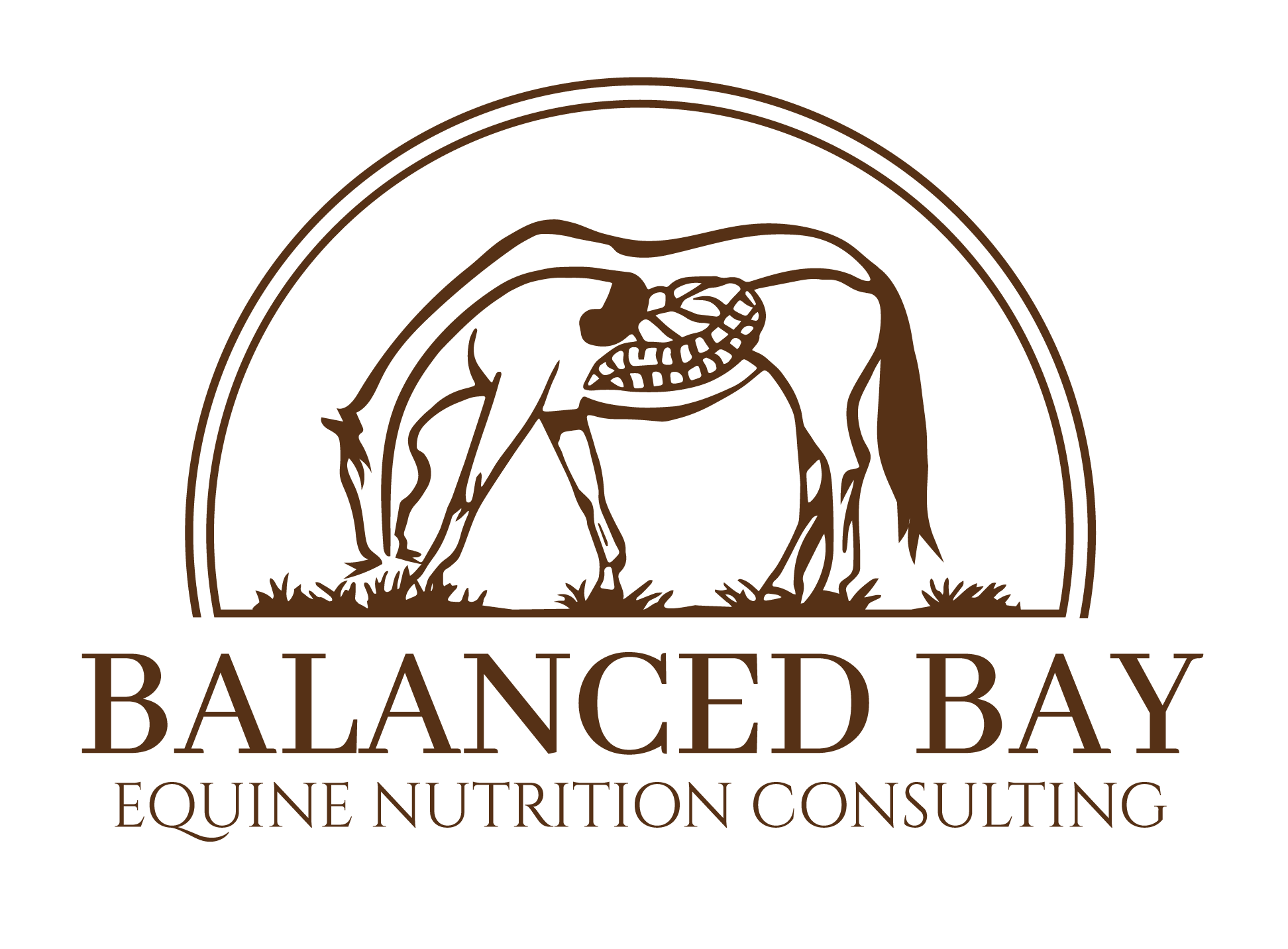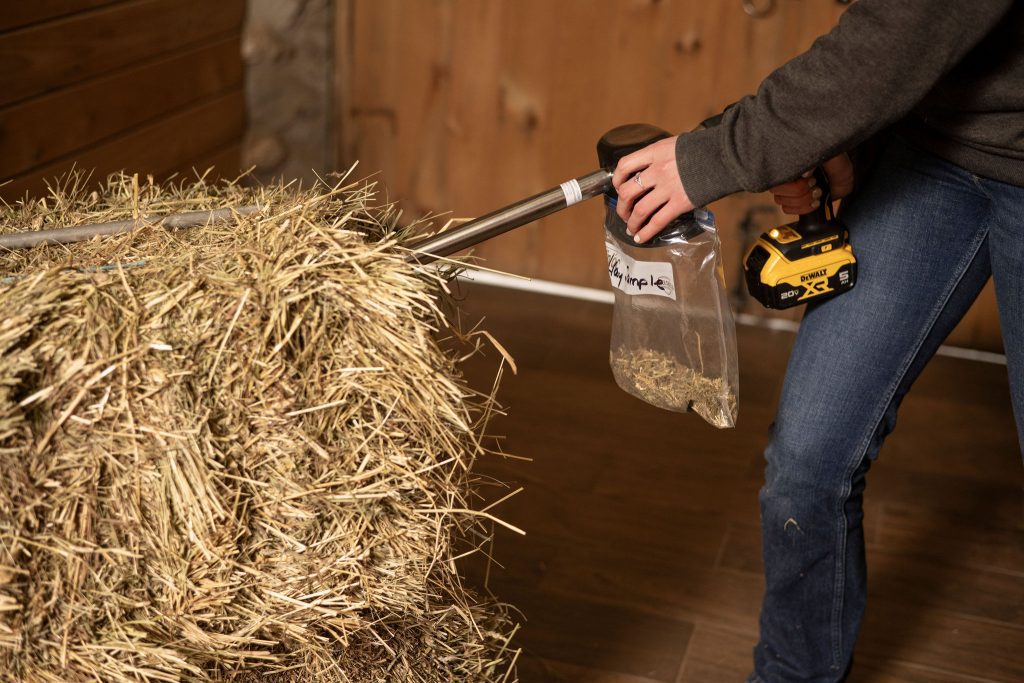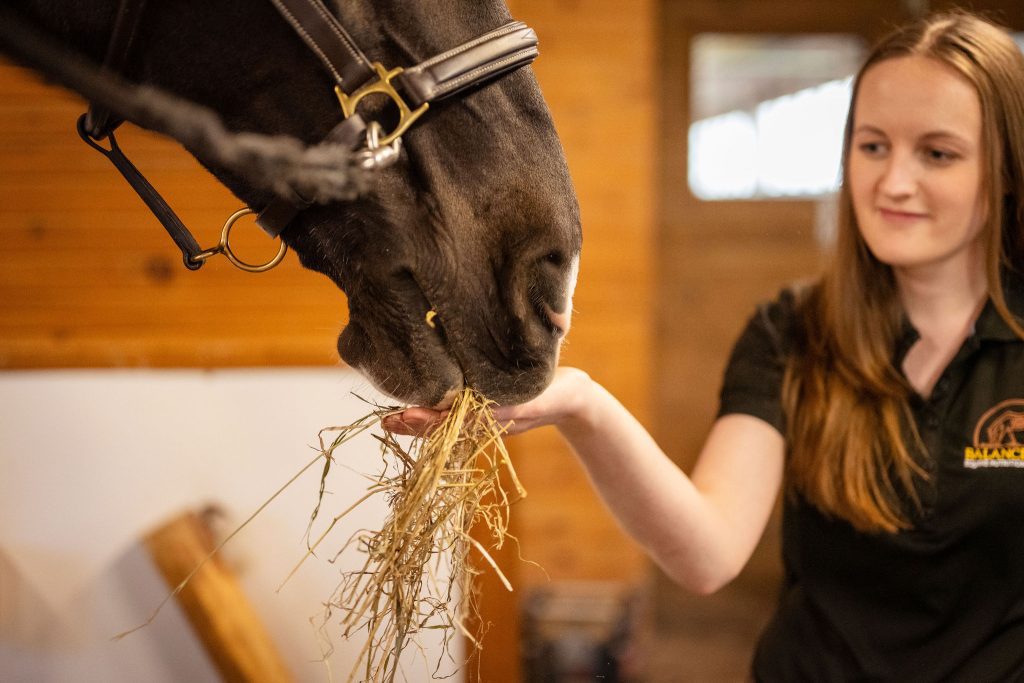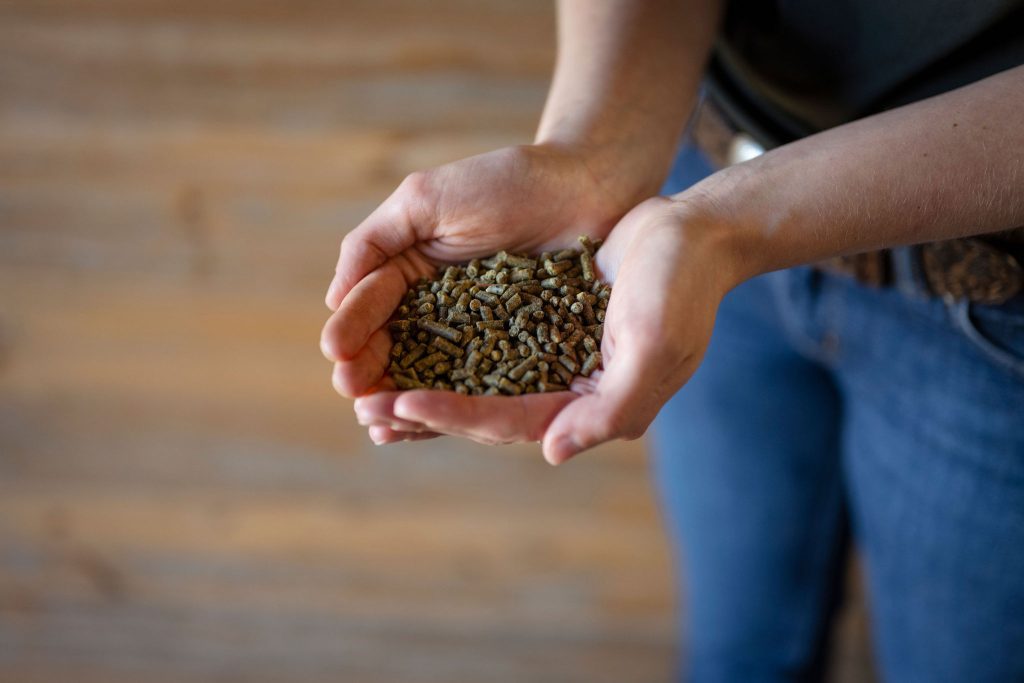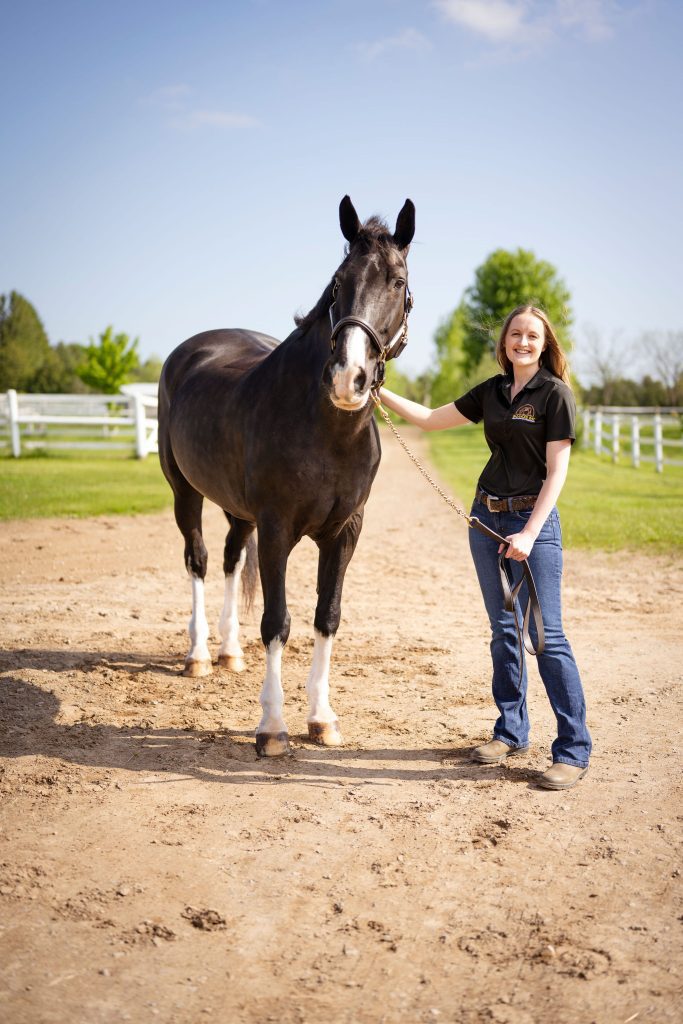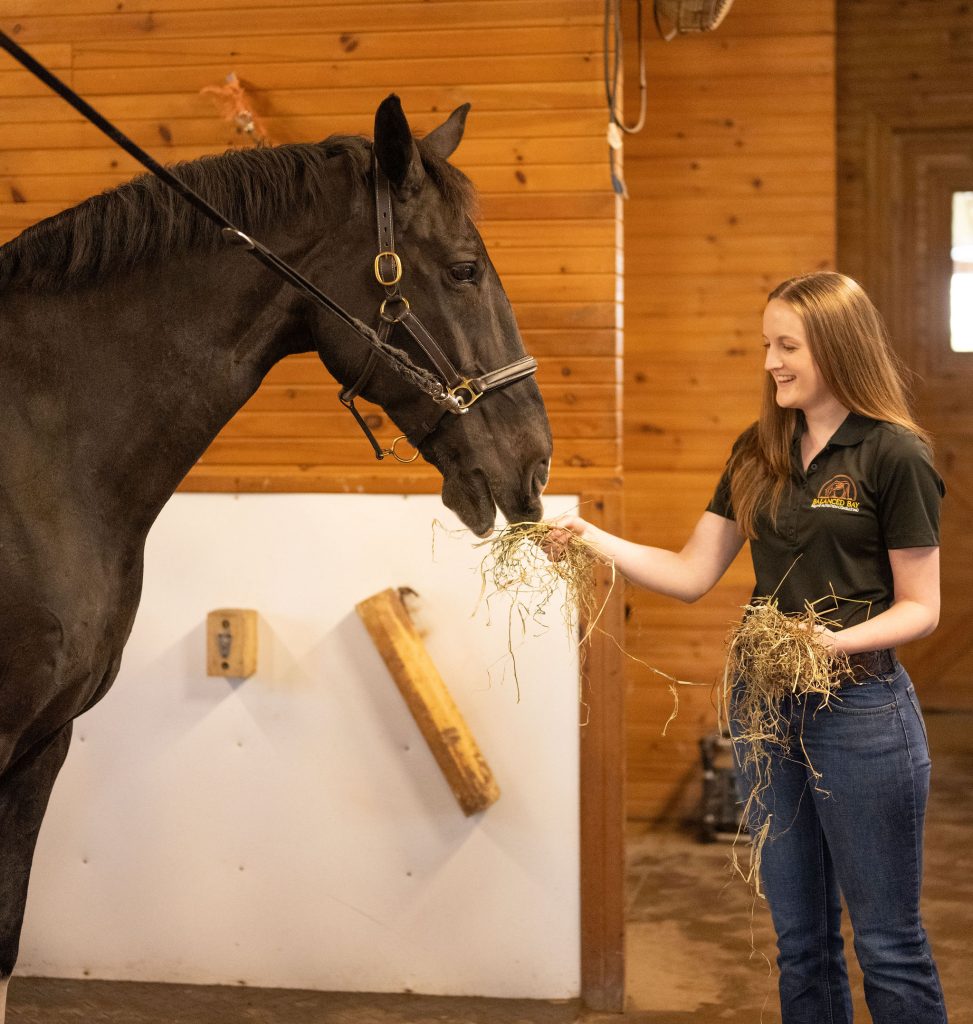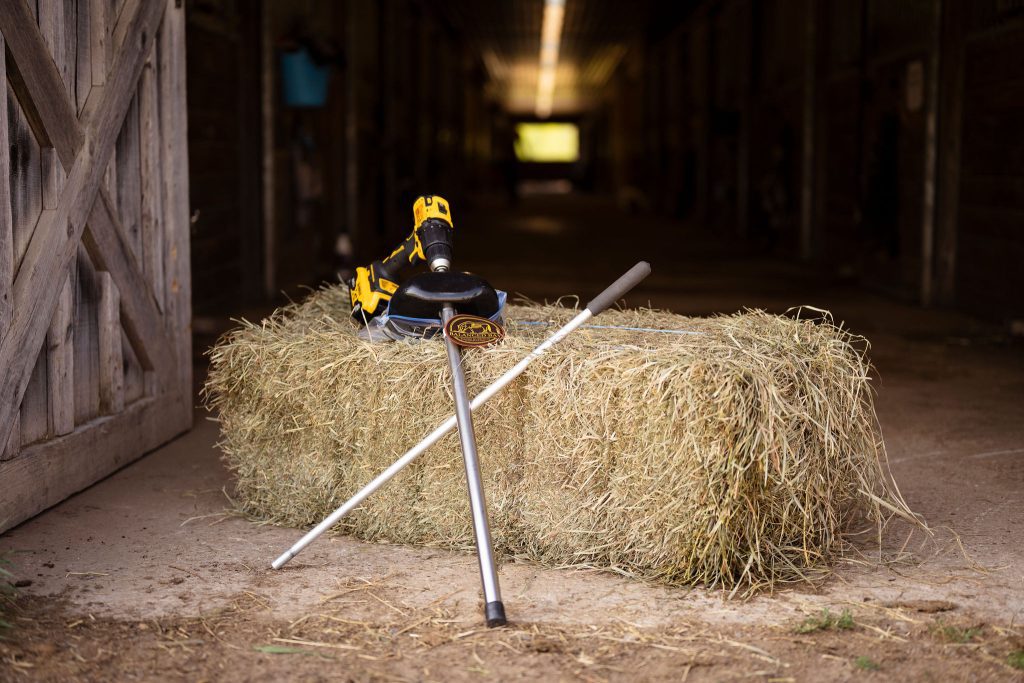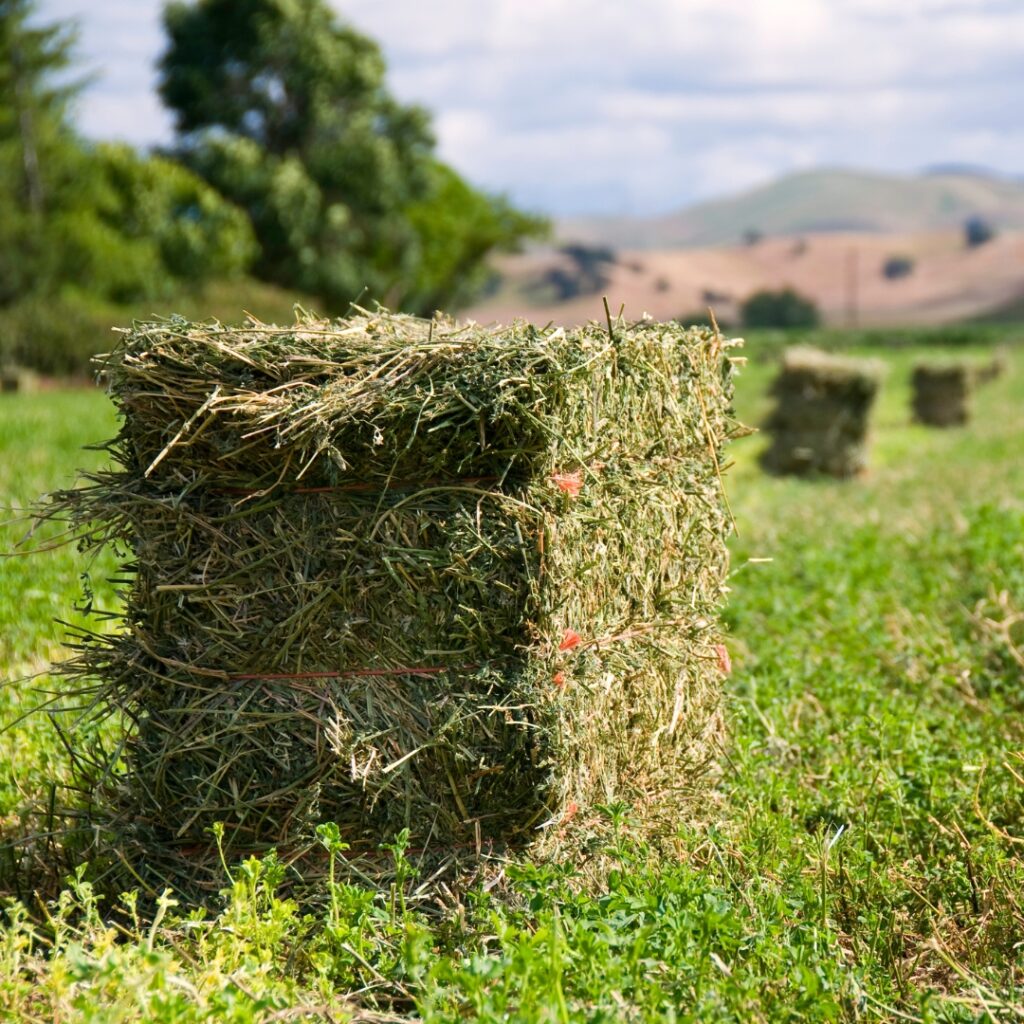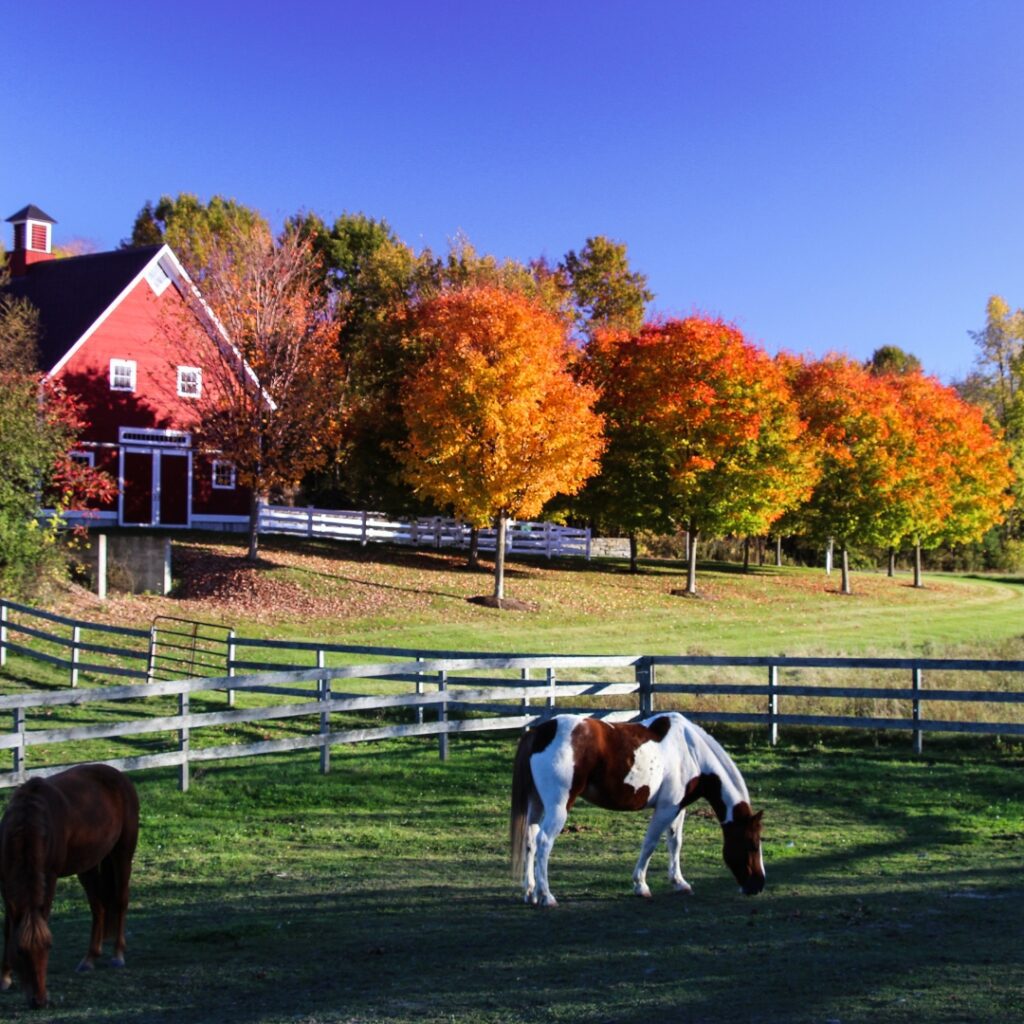
Meeting a horse’s nutrient requirements is critical to their health. Horse owners should understand the basics of nutritional management, and how to supply adequate nutrient amounts. As a practicing equine nutritionist, I often get questions about nutrient requirements – how are they determined? What are these amounts based on? How a nutrient requirement has been […]

Hay testing is a practice that is fortunately gaining popularity. However, many owners are still confused about how and when to test. Let’s dive into hay testing, and how to better support our horse’s well-being with balanced nutrition. What is A Hay Analysis? A hay analysis involves taking samples of your horse’s hay – often […]

After water, fibre is the most important component of the equine diet. When insufficient fibre is fed, it has been shown to lead to hindgut acidosis, gastric ulcers and stereotypic behaviours (e.g., cribbing). Most owners understand that it is critical for horses to have ample access to forage to meet their fibre requirement, whether it […]

Forage alone will not meet a horse’s vitamin and mineral requirements. Whether a horse is on hay or pasture, a supplemental source of minerals is required to adequately meet their nutrient requirements. There are two main type of products that are used to add vitamin and mineral content to a diet, ration balancers and vitamin/mineral […]

Do you know how many calories your horse should be consuming in a day? Or if your hay has a high, or low-calorie content? Have you ever tried to modify behaviour with dietary changes? There is so much to think about when it comes to calories in the equine diet. Understanding the different types and […]

Digestible energy content of the diet, also referred to as the calorie content, is in my opinion, one of the most overlooked aspects of equine nutrition. Many horse owners will focus in on the protein percentage of their feed, or the sugar content of the hay, however, calories are rarely discussed. Adequate weight management is […]

If you follow the educational content that Balanced Bay publishes, you have likely heard the importance of hay testing stressed many times. Hay is often the majority of what a horse consumes, so it only makes sense to know what the nutritional value is! It is common that when horse owners receive their hay analysis […]

Hay season can be a stressful time for many, from the farmers harvesting it, to the horse owners purchasing it. With the variety of variables that influence the nutritional quality and safety, there are many considerations to be made. During this time of year, I receive tons of questions about new hay. Is it safe […]

What is Alfalfa? If you own a horse, chances are you are familiar with alfalfa. When forage for horses is discussed, there are two broad categories: grasses and legumes. Alfalfa is a legume that is commonly included in hay. This forage plant tends to be nutritionally dense and can be a great addition to equine […]

A topic that goes hand in hand with equine nutrition management, is the management of pasture and hay fields. As most horse owners know, it takes a team to ensure our horses are thriving. For this week’s blog post I had the pleasure of interviewing Michelle Durnin of Prosperity Ag Consulting on her top tips […]

